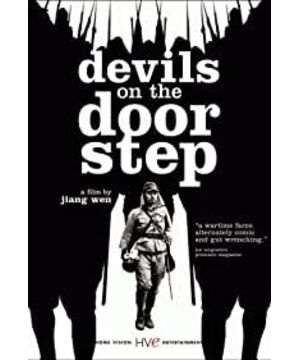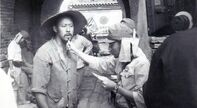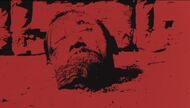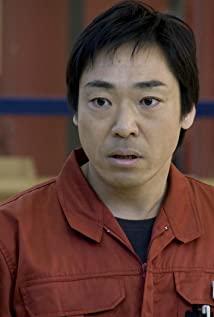It's a pity that such a good film was only watched today. After a day, I still have the fragments in my mind, and I feel more and more that it is a rare masterpiece. After thinking about it, it is because I have never gotten such a resonance in my heart. A satirical way to write a corner of the real history.
It is said that a documentary is the epitome of history, so it expresses a condensed shot, allowing people to see the core meaning in a short period of time, so we saw all kinds of slaughter and looting, and then rose up to resist, and the small universe broke out. At first, that is, before today, I thought this kind of film was very ridiculous. Could it be that there are only massacres and tearing in history? Jiang Wen used this film to tell us that reality is often cruel. I remember the old thirteen in the Yongzheng Dynasty who looked righteous and awe-inspiring, but said the reality that there is no money and no soldiers willing to work for you. Under the cruel reality, there are intriguing princes and ministers who cling to false justice everywhere. After all, the old thirteen did not What is good to end, but what does he get? There are gains and losses, and it's worth it, which is why I like the Yongzheng Dynasty. We can't deny the country's credit just because of the success of the Communist Party, we can't say that Japan's massacres and aggression against China mean that they are inherently evil, and we can't be lustful all day long just because we were slaughtered. But in fact, the vast majority of people are like the moment of execution in the film, they have no position at all, which is extremely ridiculous. Although Jiang Wen used a movie to tell us that this way of dealing with farmers and snakes is ultimately self-deception, people who are crazy like the seventh master dare to do things but really kill the Japanese devils in the end, just like the relationship between the kidnapper and the kidnapped , often the strength gap between the two sides is not that big. In other words, as long as you dare to think about it, the facts are likely to change or change their direction accordingly.
There is a kind of irony everywhere in the film: Ma Dasan is playing a small abacus, Ma's wife is superstitious and only cares about herself, the villagers have many clever ideas but dare not resist any more ideas, the singers are windy, and the national army has nothing. Inhuman, ignorant and ridiculous, a knife-wielding master who has no ability but is already a fairy, a translator who only promises to deceive the top and the bottom is not a human being, and so on, there are countless, there are not so many devils, there are not so many Dong Cunrui, there is no battle. So relaxed, not so much indignation, some were slaughtered to the death for eight years. Aren't all kinds of angry youths kneeling and licking the floor and drooling just like the common people in this film? It's simply "the pigs know it", what do they know? Don't know anything. For years I've wondered why no one has come forward and said something real? Almost from the side to the big celebrities on TV, they all kneel, lick and pretend to be stupid, which made me angry, and then I had to wonder if I was the only one who thought this way, or if I was insane and didn't fit in with the group, so that I had to wonder. For a long time there was a bit of hatred for a small group to a large group. Later, I realized that they only have their own little thoughts in their hearts. You say he is stupid but he is smarter than you. You say he is smart but he pretends to be confused. Damn it, maybe this is the old saying that great wisdom is foolishness, but this great wisdom is like foolishness here, just like the fault of our culture, it has been foreshadowed since Qin, Han, Song and Qing Dynasties. Today, I watched "The Devils Are Coming" for the second time, and after listening to the warship march at the beginning of the film, everything suddenly became clear. This "upright" army song is full of atmospheric melody that strongly suggests guidance. Under such a role, serve the country, be proud of it and be bound for life. Sometimes, people are just one of a group of lambs who are slaughtered in a square inch of grass. Whether they are slaughtered or not, the grass still has to be eaten and fought. The sun rises as usual.
So the story goes like this: One day, in a certain village in a certain corner, during the day, the oncoming performance is a relaxing and positive march, so comfortable that you feel the wind almost blowing in your face. The children not far away were imitating the majestic appearance of the devils riding horses. The vicious devils gave them candy as usual. Villager A hurried over, nodding, bowing and laughing as they served the cows and horses, grateful for this kind enslavement, and hoped it would continue like this forever; In the evening, on the other side of the village, Villager B is stealing and having fun. This small village has been living peacefully for eight years. However, one day, someone used a gun and stuffed them with two people, so everything had to start to change...
That's it.
Now it seems that it is not unreasonable to tear the devil by hand. Dong Cunrui is Dong Cunrui, and Dazhiruoyu is indeed this Dazhiruoyu. So, where did so many gods and Buddhas come from? What is Buddha?
However, the little Japan not far away continued to hate our clan tirelessly, as a thorn in the eye.
The PS film is almost explained, here are some interesting things:
1. The devils ruled for eight years. The villagers were obedient and unwilling to resist. The children were proud of their faces when they learned the way the devils rode on horses. After sending the prisoners to get food, he was very grateful to the devils.
2. Ma Dasan said, I didn't interfere with your affairs, how to come and how to go. The corresponding fourth cousin brother-in-law pits his beans.
3. The opera singer in the city said that the imperial army was good, and in the blink of an eye, he scolded his mother over and over again.
4. The villagers are unwilling to change, but some people force them to change with a shell gun. Immediately afterwards, Ma Dasan suffered alone, but he had to pull the whole village into the water.
5. After eight years of slavery, a knife master somewhere in the city is enjoying the pleasure of worshipping. Then the man with the knife didn't kill him, but he said that his life should not end, and ran for his life.
6. The devilish devils played a peaceful march and distributed candy to the children. They were not like devils at all. In the end, he kept his promise but slaughtered the villagers. (Similarly, the previous march echoes the 50-year life scene sung later)
7. The timid villagers secretly rejoiced because they cheated with the powerful to get food, but they were all slaughtered by others. Villagers with small abacus will eventually die on the small abacus.
8. The devil who thinks highly of himself and swears allegiance to the emperor is never afraid of death or does not want to die, from arrogant to submissive, from hatred to gratitude, from gratitude but turning his face.
9. As the representative of the villagers, the fifth uncle and grandfather are useless. In the end, sitting side by side with the devils can only be slaughtered.
10. The two necks were servile and only dared to spread their anger on the captives. When the villagers finally dared to resist, they all died. One ruler left, but another ruler came, so Ma Dasan had to accompany the villagers to death. once.
11. Japanese soldiers who dare not steal chickens have turned into looting devils.
12. The villagers did not join in either faction, but rose up to resist when their relatives died. And the grateful little Saburo killed the villagers because they patted the officer on the shoulder.
13. The villagers went from "protecting their lives" to protecting the captives to finding ways to exchange some food for personal gain. The devils, from keeping their promises to setting traps to slaughter villagers, all wanted to do something for themselves. is fart.
14. Xiao Saburo wanted to die in front of the spirit of Bushido but did not dare to die. Dong Hanchen wanted to die as a traitor in order to survive, but he had to die.
15. After eight years of slavery, when Ma Dasan was executed for killing the Japanese devils, not only the villagers understood and laughed, but so did the pigs, and even the dead Ma Dasan understood and laughed.
16. As soon as he gets shy, he hooks his shoulders, and is inexplicably angry at the anger above. It is a fool's nature.
17. The enslaved and powerless Ernecks are fucking eloquent and ignorant.
18. The performance in the film is really in place, close to reality, especially the part where Ma Dasan explains the traitors, which is very interesting.
19. Dong Hanchen's translation is very interesting. For example, it is said in the front that Japanese people laugh or not laugh the same way. Later, they say that Chinese people kill or not kill people. Then they say that Japanese people are like this. look). People rely on one mouth to speak, and no matter what they say, let them spread out, he is selective, according to his own position and mood.
20. In the film, the villagers expressed their disdain for the lame Seventh Master (that's right?) who said he wanted to bury the Japanese devils. Similarly, the four cousins in the back saw the arrested rebels and said something brave and reckless.
21. At the beginning, he forced Ma Dasan and the national army to rely on each other with a gun. It is very interesting. Wu Dawei can be said to be the finishing touch, and that dialogue is also the meaning of the whole film.
Let's see what their attitude is:
Ma Dasan: Who am I for, I am not for our whole village
Fourth cousin-in-law: I am a conscientious Chinese; this guy is brave
Yidao Liu: Famous for a lifetime (feeling the beard proudly)
Fifth Uncle Grandpa: Women are good, good wine; you play a song alone, and let us all have a good time?
Liuwang: (proudly) What are you afraid of? Don't be afraid (touch head)
Ma Dasan's wife: We don't kill people, we can't kill people, we don't have ghosts; you big men ask me what to do
Aunt Eight: The body is not afraid of the shadow crooked, what do you think they dare to do to me? He dares!
Singers: Sing to them and sing us, what is this called, Mahle Gobi
Dong Hanchen: The Japanese are like this; the Chinese are like this
American Sergeant: Roll Nima's Egg, Little Japanese Monkey
Japanese Soldier: Asshole, you can't eat shit like this
Japanese junior officer: The words of the Chinese people are not credible. If he says east, you have to go west.
Little Saburo: Ma Dasan, are you courting death?
Zhu Ji: You hang out with the Chinese people all day, and you almost become their aunt
Mr. Gao: We will never be soft on scum who slaughter our compatriots; what is the difference between a scum like Ma Dasan, who kills Japanese prisoners who have surrendered, and a beast? You don't deserve to be a Chinese, I ordered Zhu Ji to execute Ma Dasan and execute him on the spot
Me: Who do you call when something goes wrong? you.
On the day of the execution, the children laughed, the people laughed, Dong Hanchen laughed, the pig laughed, and Ma Dasan also laughed.
The whole film is a microcosm of history, a true portrayal of the history of any era.
To sum up, so I wrote in my short comment: a group of weak clowns, a crowd of people.
There are many more, I won't list them one by one, but it is a good film. There are a thousand Hamlets in the eyes of a thousand people. What the director wants to say is the director's business. You can get a resonance from it and whether it is good or not is your business. The key is what you get and feel, not what the director expresses. You understand Are you done. In other words, even if you understand what the director expresses, but you don't agree, isn't this a bad movie for you?
Last but not least, this is a movie worth watching. It tolerates the ignorance of some people. Otherwise, you will have to fight alone. The strength of our family is the foundation. As for small Japan, hatred of the country is hatred of the country and hatred of the family, let alone hope for anything. With a thousand or two thousand years of interactive history there, China will never think of leaving the word "little life" in this life.
View more about Devils on the Doorstep reviews










